Are Extended Stay Hotels Cheaper Than Apartments?

When choosing between an extended stay hotel and an apartment for long-term living, cost is one of the most crucial factors people consider. If you’re asking, “Are extended stay hotels cheaper than apartments?” you’re not alone. Many people are curious to understand which option offers better financial value. This article will help you compare both options, focusing on pricing, flexibility, and convenience, among other important factors.

What Are Extended Stay Hotels?
Extended stay hotels are designed to provide guests with the comforts of home while offering the services of a hotel. They typically include features like furnished rooms, kitchenettes, housekeeping, and utilities. These hotels are ideal for people staying in a location for an extended period of time, whether for work, relocation, or other personal reasons.
What Are Apartments?
Apartments are private residential units, usually rented on a month-to-month or yearly lease. Unlike hotels, apartments typically require tenants to sign contracts, arrange utilities, furnish their space, and handle all day-to-day living tasks themselves, like cleaning and cooking.
Extended Stay Hotels vs. Apartments: The Cost Debate
Are Extended Stay Hotels Cheaper Than Apartments?
In terms of raw cost, extended stay hotels can be more expensive when compared to traditional apartments on a month-to-month basis. However, this isn’t always the case. The overall affordability depends on various factors such as location, duration of stay, and included services.
Let’s break this down:
- Utilities: Extended stay hotels typically include utilities like electricity, water, and Wi-Fi in their pricing, whereas these costs are often extra in apartments.
- Furniture & Amenities: Extended stay hotels come fully furnished with amenities like housekeeping, laundry services, and kitchen appliances. Apartments, on the other hand, often come unfurnished, which could add upfront costs.
- Flexibility: Apartments usually require long-term leases (6 months to a year), while extended stay hotels offer flexible terms, which could save money if you only need short-term housing.
Why Are Hotels More Expensive Than Apartments?
Hotels, including extended stay ones, are often more expensive because they offer several additional services such as:
- Daily or weekly housekeeping
- Concierge services
- Free breakfast or room service
- 24/7 customer support
These conveniences are usually not available in apartments, making hotels a pricier but more comfortable option.
Extended Stay Hotels vs. Apartments: A Side-by-Side Comparison
| Feature | Extended Stay Hotels | Apartments |
| Cost | Typically higher per month but includes utilities | Lower monthly rent, but utilities and furnishings extra |
| Utilities | Included in the price | Paid separately |
| Furniture | Fully furnished | Often unfurnished |
| Housekeeping | Included (usually weekly) | Not included, must clean yourself |
| Lease Terms | Flexible, often no long-term commitment required | Long-term leases (usually 6-12 months) |
| Amenities | Often includes kitchenettes, gym, laundry services | Basic, unless it’s a luxury apartment complex |
| Flexibility | High (can stay for days to months without a contract) | Low (typically requires a minimum lease period) |
How Much Would It Cost to Live in a Hotel for a Month?
The cost of living in an extended stay hotel for a month depends on the location, hotel type, and services offered. Generally, prices can range from $1,500 to $4,500 per month in the U.S.
- Budget Extended Stay Hotels: Approximately $1,500 – $2,500 per month
- Mid-Range Extended Stay Hotels: $2,500 – $3,500 per month
- Luxury Extended Stay Hotels: $3,500 – $4,500+ per month
These prices typically include utilities, internet, and sometimes breakfast, but do not account for additional costs like parking or pet fees.
Is Living in a Motel Cheaper Than Renting?
Motels are generally cheaper than extended stay hotels and apartments, but they also offer fewer services and less comfort. While motels might charge between $1,000 to $2,000 per month, they often lack amenities like a kitchen, workspace, or laundry services, which can make long-term stays less practical.
Extended Stay Hotels vs. Apartments: Pros & Cons
Pros of Extended Stay Hotels
- Flexibility: You can stay for as long or as short as you like without being tied to a lease.
- Convenience: No need to worry about setting up utilities, internet, or furniture.
- Housekeeping: Regular cleaning services help you maintain your living space with less effort.
- Short-Term Savings: If you’re staying for a few weeks or months, the all-inclusive pricing can sometimes save you money compared to an apartment, especially if you factor in the cost of utilities and furniture.
Cons of Extended Stay Hotels
- Higher Monthly Cost: Extended stay hotels are generally more expensive per month compared to renting an apartment.
- Limited Space: The rooms are typically smaller than most apartments.
- Less Privacy: Frequent interactions with hotel staff and shared spaces can feel less private than an apartment.
Pros of Apartments
- Cost Efficiency: If you’re planning on a long-term stay, renting an apartment is generally cheaper.
- More Space: Apartments typically offer more square footage than hotel rooms.
- Personalization: You have more freedom to decorate and furnish the space to your liking.
Cons of Apartments
- Long-Term Commitment: Most apartments require a lease of at least 6 months, which isn’t ideal for short-term living.
- Additional Setup: You’ll need to furnish the apartment and set up utilities, which can add both time and cost.
- Less Convenience: No housekeeping, room service, or 24/7 staff to assist you with your needs.
Extended Stay Hotels vs. Apartments: A Detailed Chart
| Category | Extended Stay Hotels | Apartments |
| Cost (Including Utilities) | $1,500 – $4,500 per month | $800 – $2,500 per month (plus utilities) |
| Furniture | Fully furnished | Often unfurnished |
| Lease Terms | No lease required | Requires 6-12 month lease |
| Services | Housekeeping, concierge, laundry services | Self-managed |
| Amenities | Includes kitchenettes, gyms, and workspaces | Varies, usually more basic |
| Privacy | Less privacy (shared spaces, frequent interactions) | More privacy, personal space |
| Flexibility | High flexibility, short-term stays | Low flexibility, long-term commitment |
Additional Considerations: When Should You Choose an Extended Stay Hotel Over an Apartment?
There are scenarios where opting for an extended stay hotel can be more practical or convenient than renting an apartment, despite the potentially higher costs. Here are some of those situations:
Temporary Job Assignments or Business Travel
If you’re in a new city for a few weeks or months due to a temporary job assignment or business travel, an extended stay hotel makes perfect sense. These hotels are built for temporary residents who need something more homey than a regular hotel room but without the commitment of a lease. With flexible terms and included amenities like Wi-Fi and housekeeping, they can save you the hassle of setting up a new home in a place where you’ll only stay briefly.
Relocation or Moving to a New City
When relocating to a new city, finding the right apartment might take time. Extended stay hotels offer a great option while you’re still searching for your permanent home. With fully furnished rooms, included utilities, and short-term availability, they allow you to settle in without rushing into a long-term lease commitment.
Medical Visits or Treatments
Extended stay hotels are often favored by people who need to stay close to hospitals or medical centers for long-term treatments. These hotels allow patients and their families to live comfortably near medical facilities without worrying about the extra costs and responsibilities that come with leasing an apartment.
Renovating Your Home
If your home is being renovated or repaired, living in an extended stay hotel can offer a comfortable temporary solution. You get the benefit of a furnished, clean space without the commitment of a lease, allowing you to return to your home once the work is complete.
Extended Stay Hotels vs. Apartments: Factors Affecting the Decision
There are several important factors that can sway your decision towards either an extended stay hotel or an apartment. Let’s take a closer look at these aspects:
Duration of Stay
- Short-term (1 week to 3 months): Extended stay hotels are usually the better option due to their flexible terms, included services, and convenience.
- Mid-term (3 to 6 months): Here, the decision becomes more balanced. If you find an apartment with a flexible lease or a serviced apartment, you could benefit from lower costs. Otherwise, an extended stay hotel still offers the advantage of not having to worry about utility bills and furnishing.
- Long-term (6 months to a year or more): Apartments generally win for long-term stays, as the lower rent, more space, and ability to personalize the living environment often outweigh the benefits of an extended stay hotel.
Privacy and Space
- Extended Stay Hotels: These hotels offer limited privacy compared to apartments, as you may need to interact with hotel staff regularly and navigate shared spaces. Plus, rooms are typically smaller, which might feel cramped if you’re used to having more personal space.
- Apartments: With an apartment, you enjoy complete privacy and a larger living area, often including separate rooms like a bedroom, living room, and kitchen. You also have more freedom to organize and decorate your living space according to your personal tastes.
Convenience and Services
- Extended Stay Hotels: These properties shine in terms of convenience. Housekeeping services, 24/7 support, and amenities like fitness centers or business lounges make daily life easier, especially for busy individuals. If you value having these services at your fingertips, the higher cost of extended stay hotels might be justified.
- Apartments: Renting an apartment means you’ll need to take care of household chores and maintenance yourself. While this adds some responsibilities, it also means more independence. If you’re someone who enjoys cooking, cleaning on your own schedule, and managing your home, an apartment will likely suit you better.
The Hidden Costs of Renting an Apartment
While the monthly rent for apartments can often appear cheaper than staying at an extended stay hotel, renters should be aware of hidden costs that may affect the overall financial comparison. These can include:
- Security Deposit: Most apartments require a security deposit, which is usually one to two months’ rent. This upfront cost can add to your initial expenses.
- Utilities: Unless you’re renting a fully furnished or serviced apartment, you’ll need to pay for utilities like electricity, gas, water, internet, and garbage collection separately. This can add significantly to your monthly costs.
- Furniture and Household Items: Unfurnished apartments require an investment in furniture, kitchen appliances, cookware, and other essentials. Even renting furniture can add to the overall cost.
- Maintenance Costs: In some cases, renters are responsible for minor repairs or maintenance. This varies depending on the terms of your lease.
Conclusion: Choosing the Right Option for Your Lifestyle
At the end of the day, deciding between an extended stay hotel and an apartment depends on your individual needs and circumstances. Consider the following key points:
- For short-term stays or when flexibility is essential, an extended stay hotel might be the better choice despite the higher monthly cost. The all-inclusive pricing and additional services could save you the hassle and time associated with setting up an apartment.
- For long-term stays, apartments are generally more cost-effective, especially once you account for utilities, space, and the ability to personalize your environment.
Both options have their pros and cons, and the right choice will ultimately depend on factors like your length of stay, budget, lifestyle preferences, and how much convenience or independence you value.
FAQs
Depending on location and amenities, an extended stay hotel can cost anywhere from $1,500 to $4,500 per month.
Most apartments require a minimum lease term of 6 months to 1 year. However, some furnished or serviced apartments may offer shorter-term leases.
Yes, utilities such as water, electricity, and Wi-Fi are typically included in the cost of an extended stay hotel.
For short-term stays, extended stay hotels might be more cost-effective due to all-inclusive pricing. For long-term stays, renting an apartment is usually cheaper.
Yes, many extended stay hotels offer discounted rates for long-term stays. It’s always a good idea to ask about promotions or negotiate better deals for stays longer than a month.
Most extended stay hotels offer amenities such as a fully equipped kitchenette, free Wi-Fi, cable TV, housekeeping services, laundry facilities, and sometimes a fitness center. The level of amenities depends on the hotel’s category.
Many extended stay hotels are pet-friendly, but they often charge additional fees for pets. It’s important to check with the hotel regarding their pet policy before booking.
Yes, extended stay hotels generally provide kitchenettes or full kitchens, allowing guests to cook their own meals. These kitchens typically come with basic appliances like a stove, microwave, refrigerator, and utensils.
Breaking a lease can result in financial penalties, depending on the terms of your rental agreement. Some leases have early termination clauses that allow you to leave early, but you may still be responsible for paying a fee or the remaining rent on the lease.


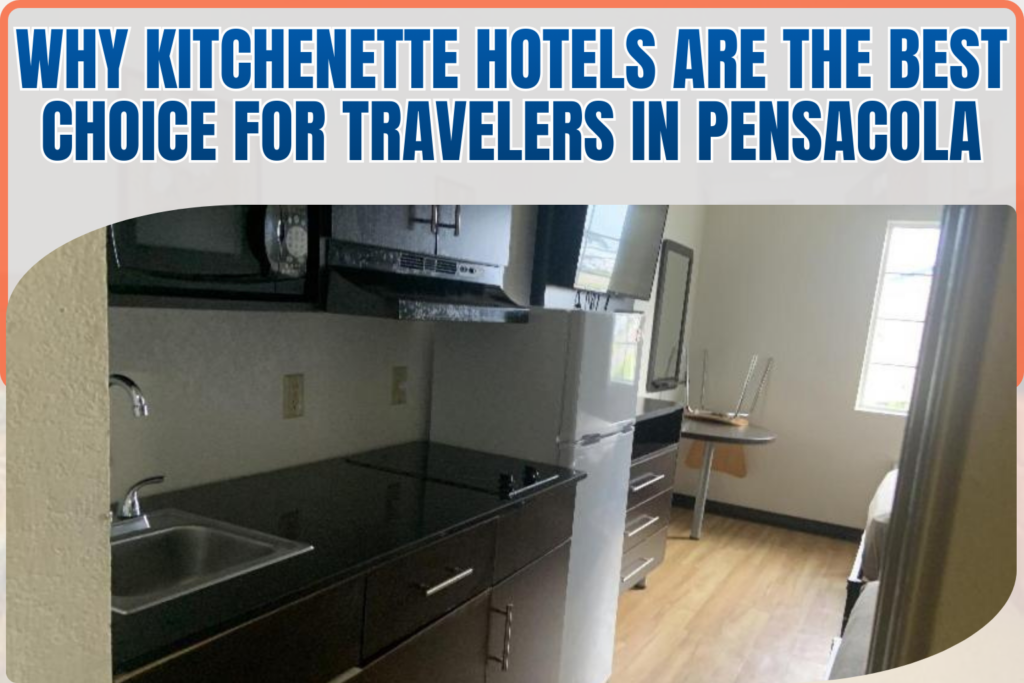

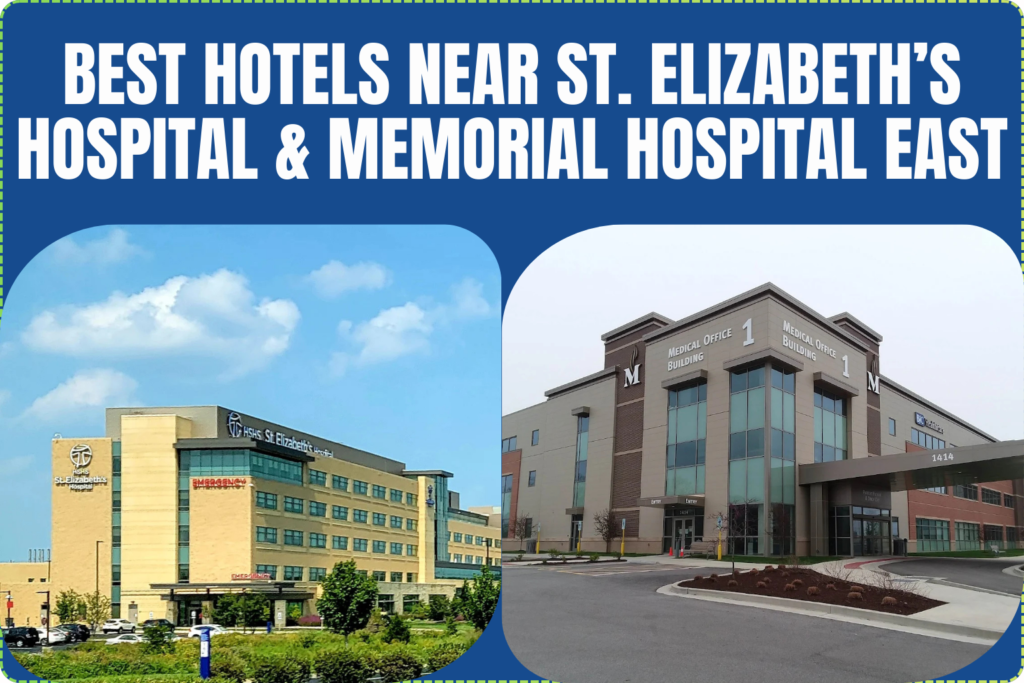
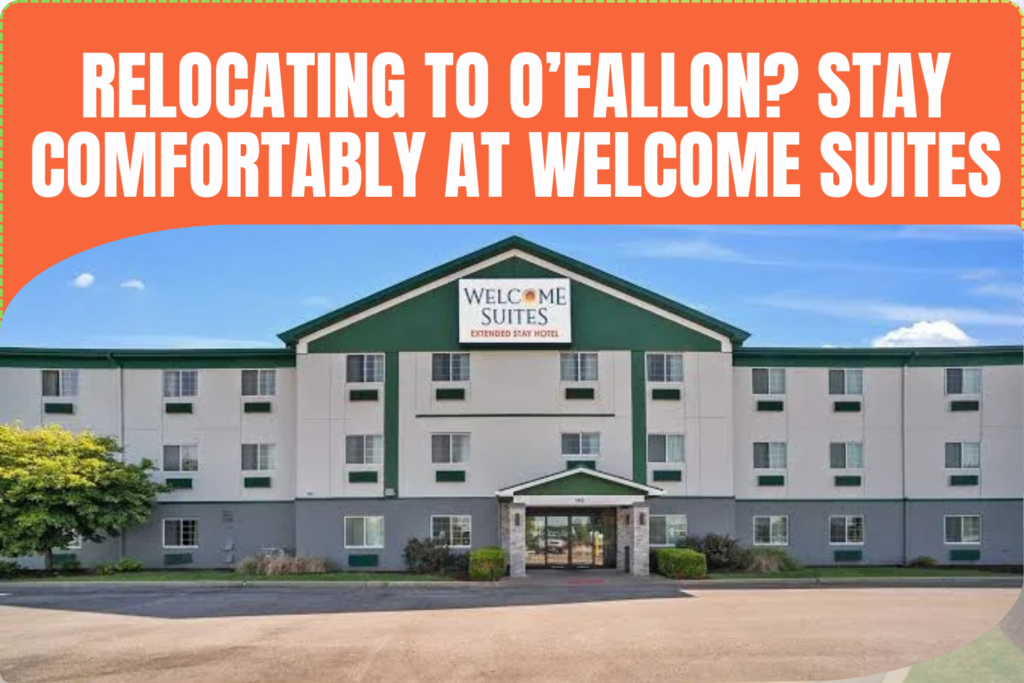
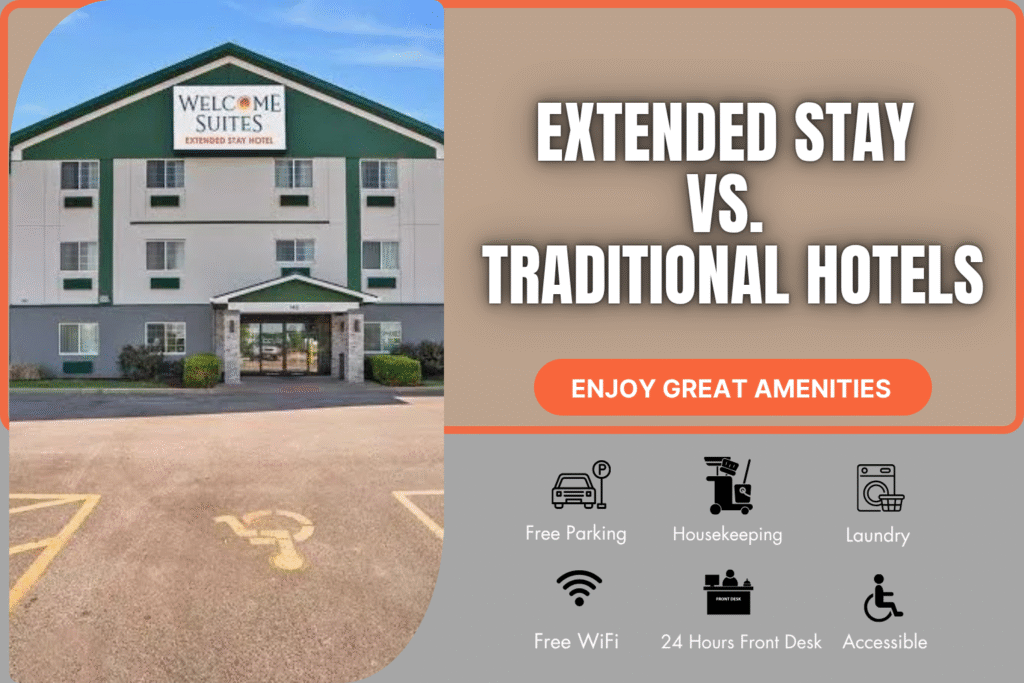
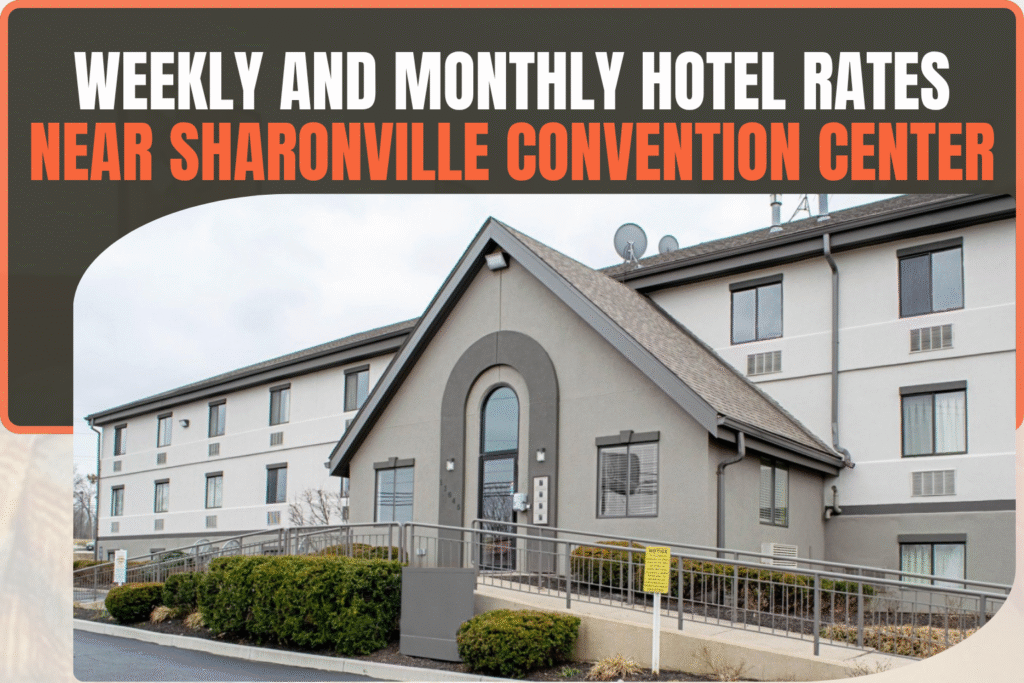
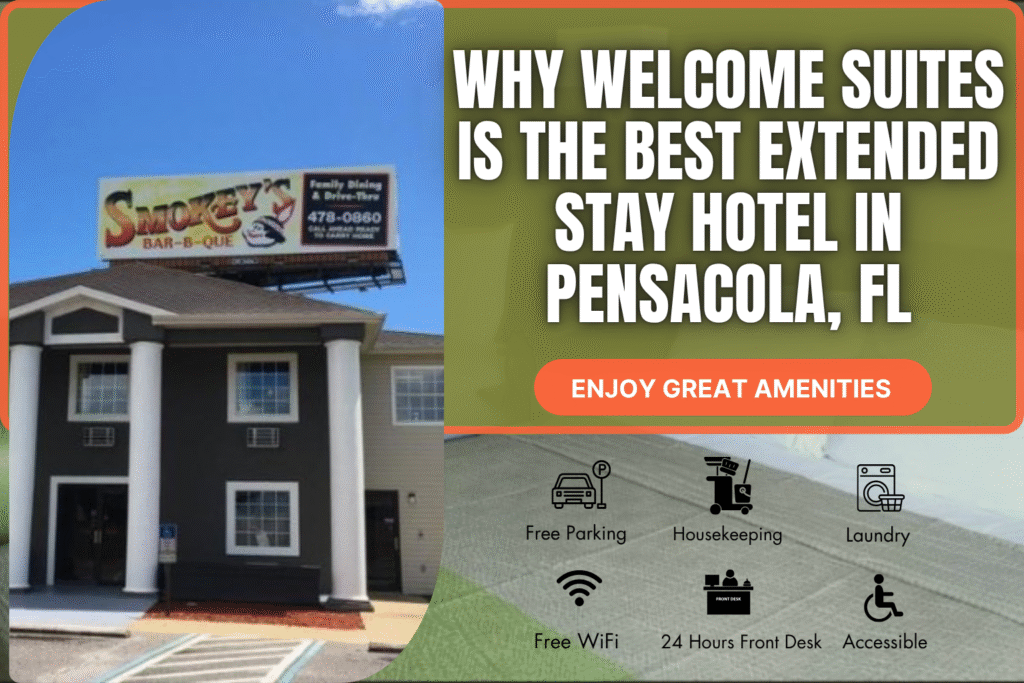
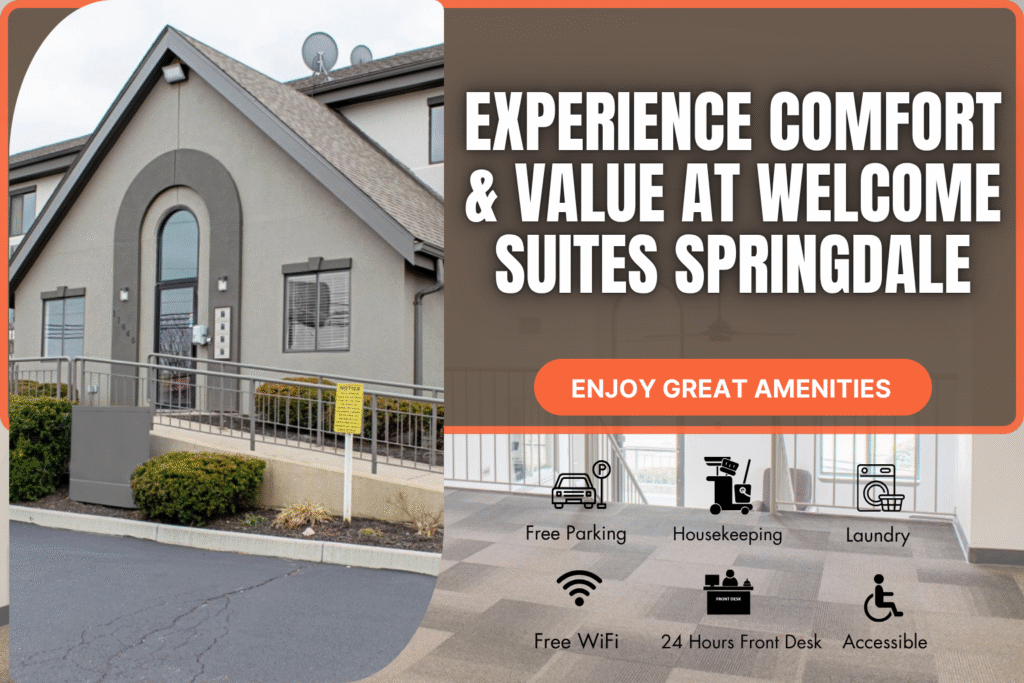
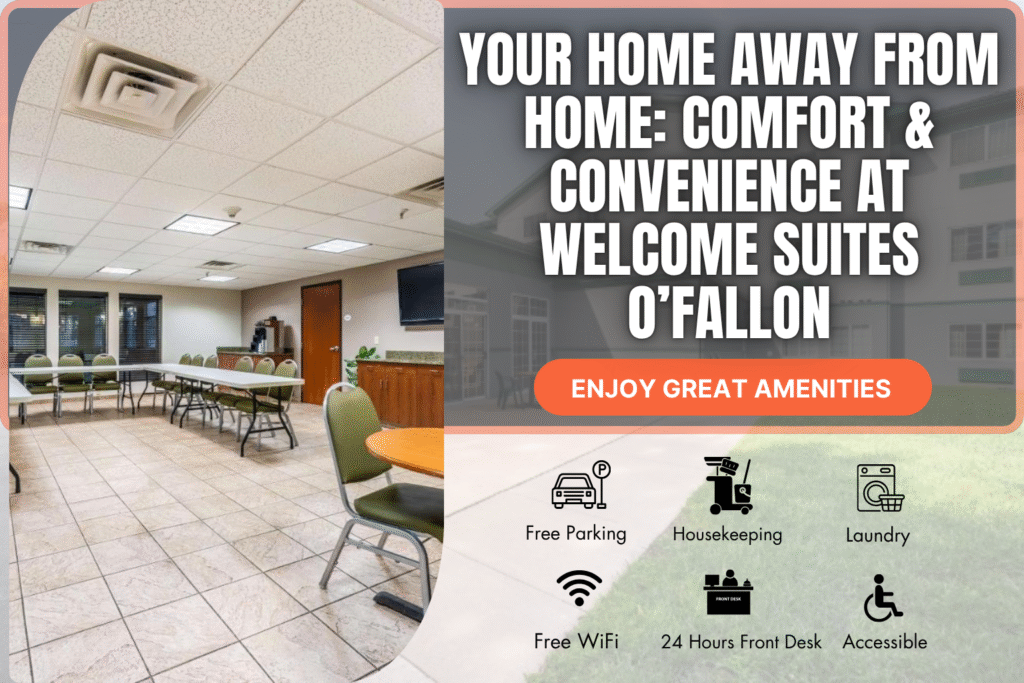


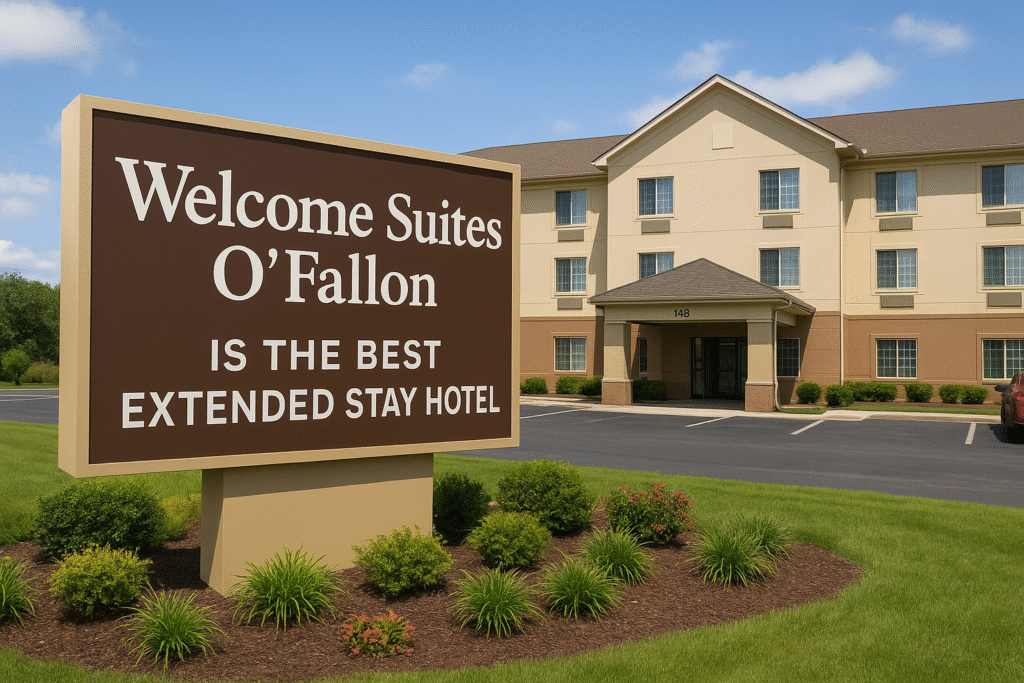
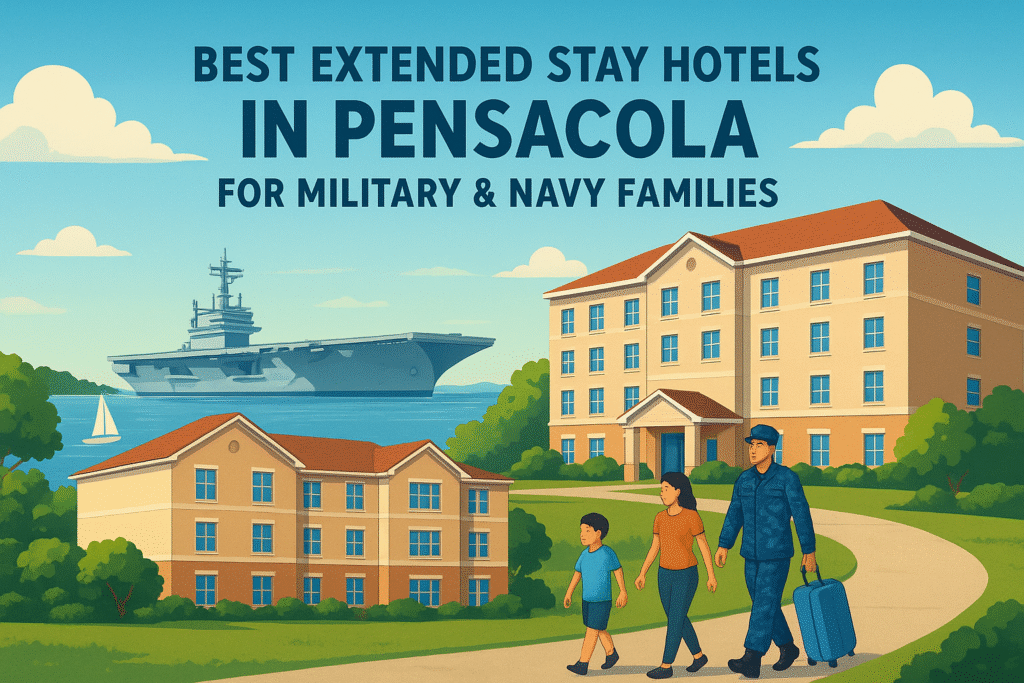
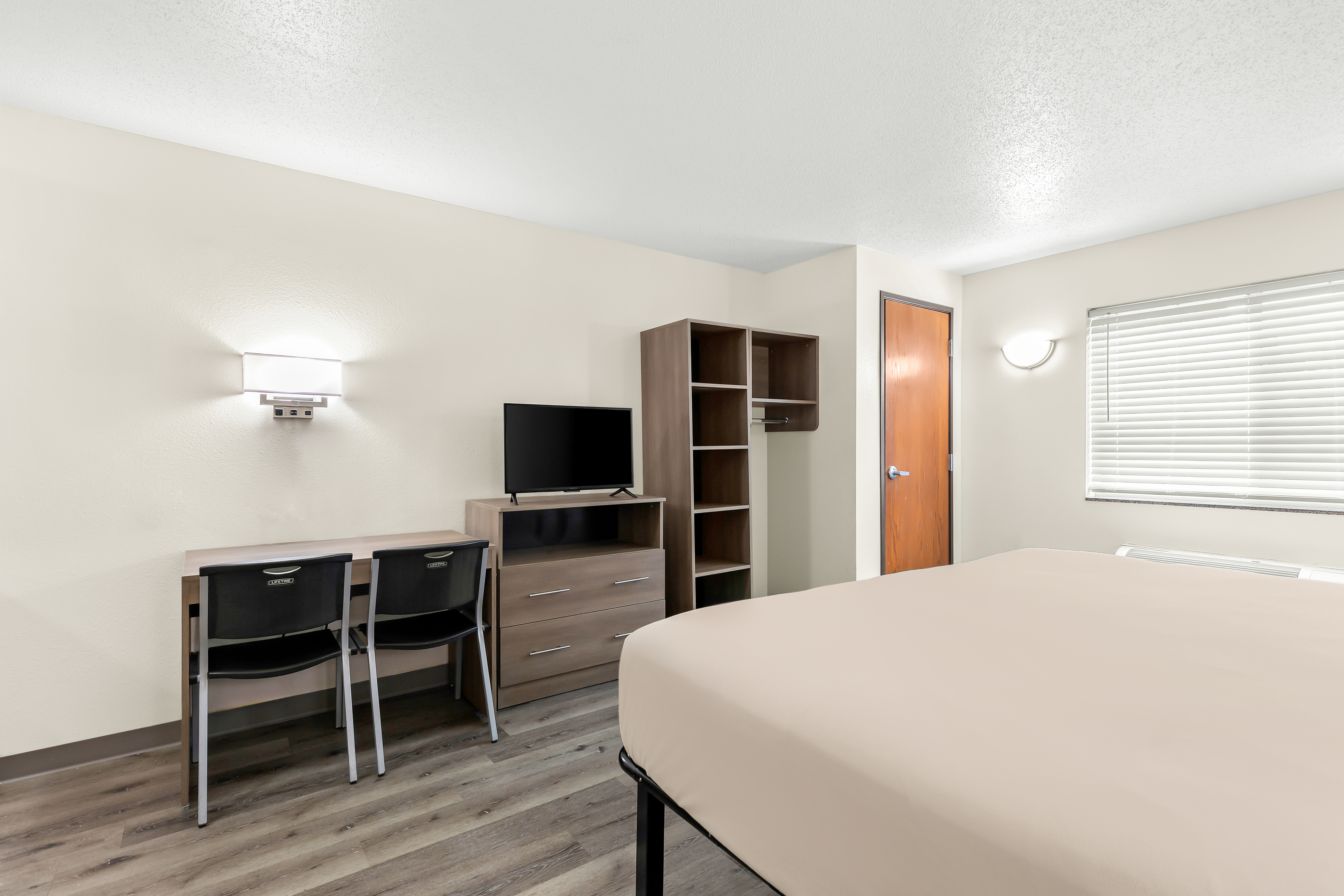


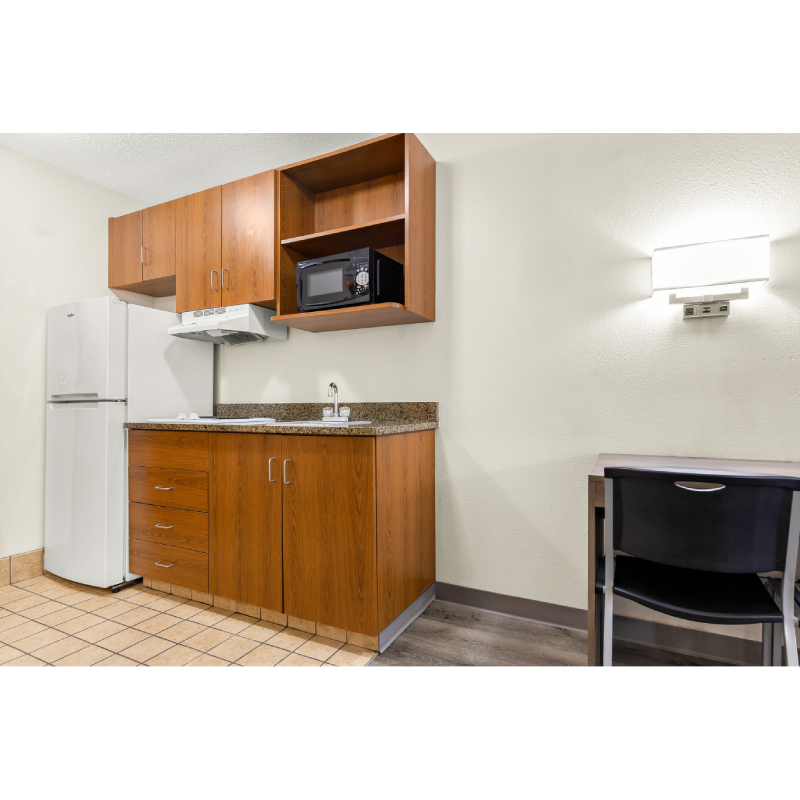

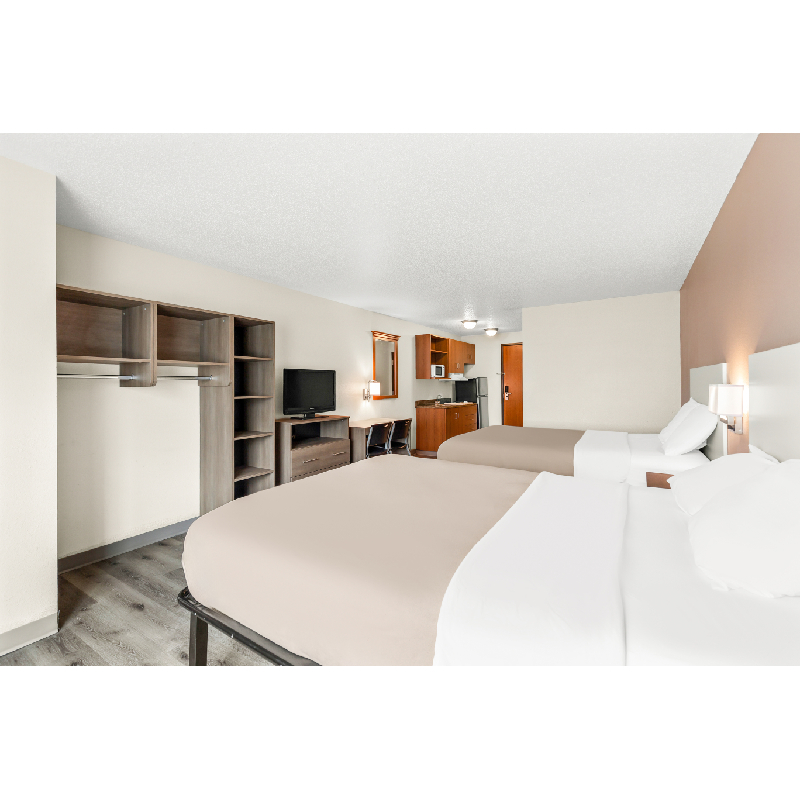




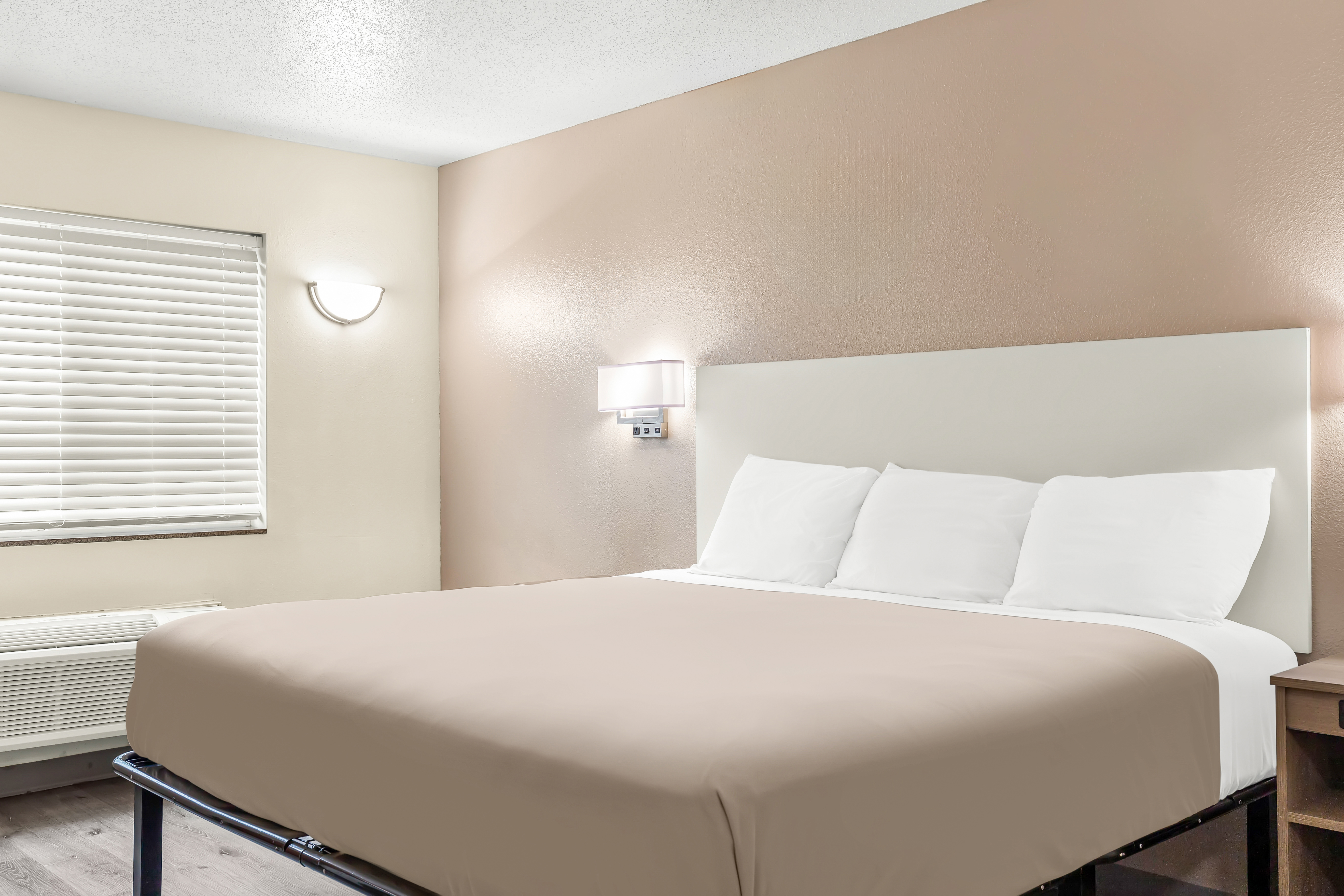
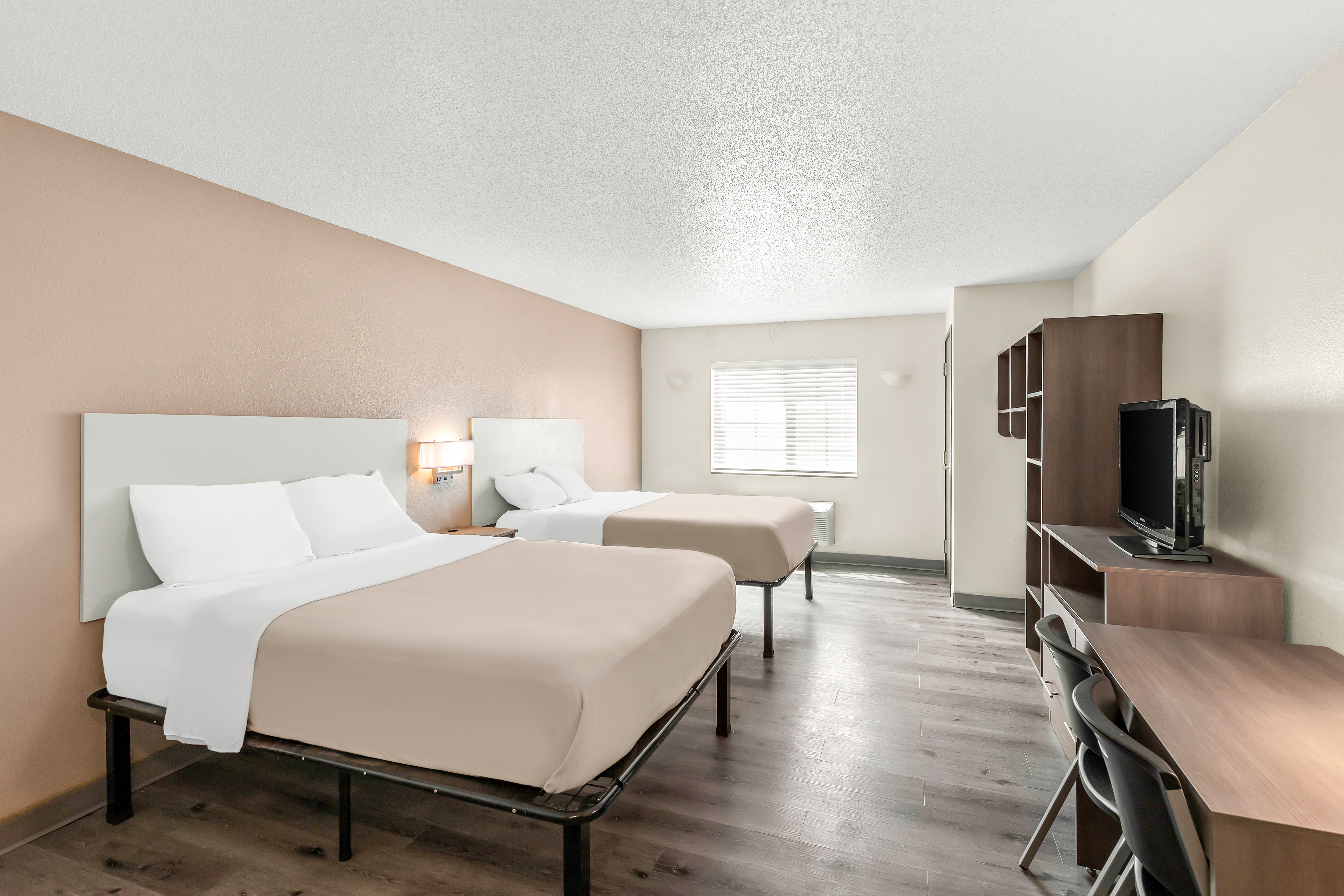
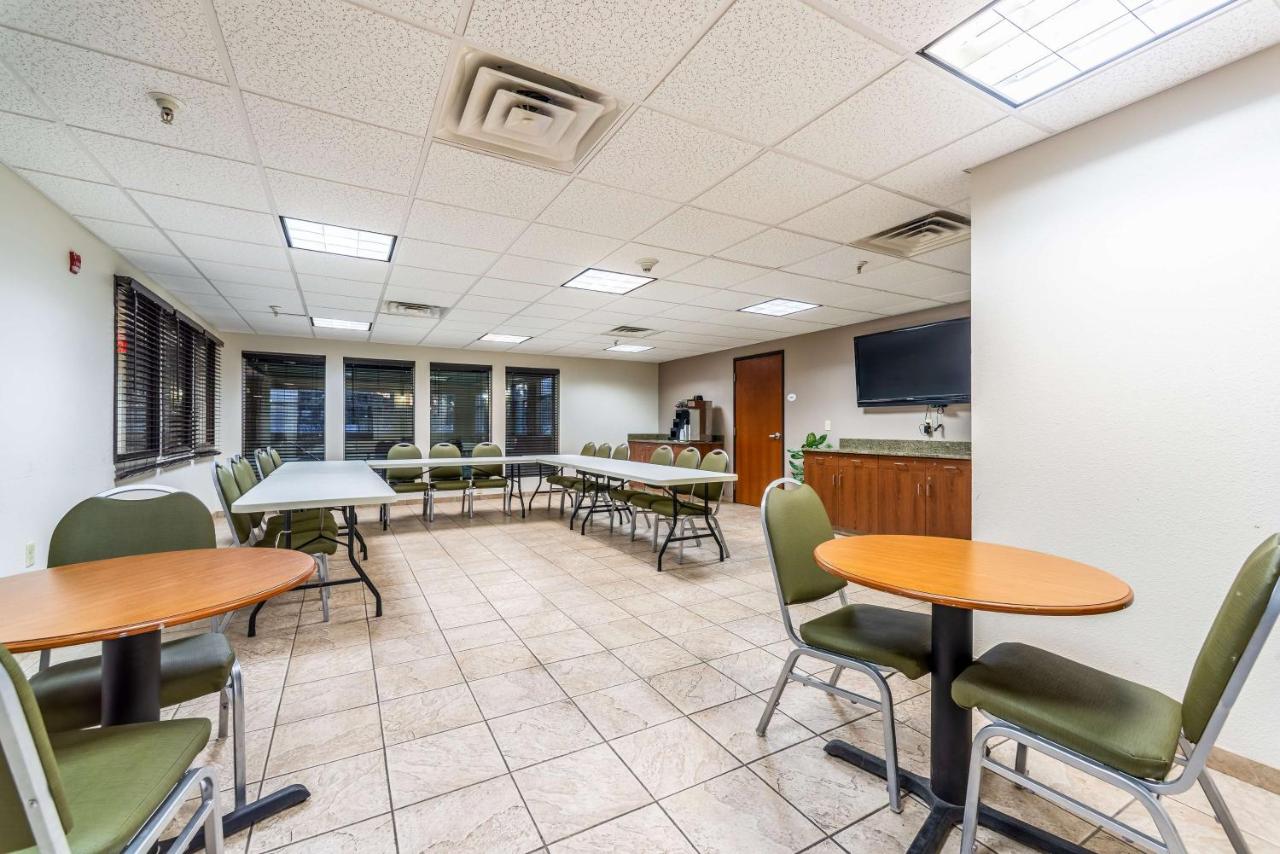
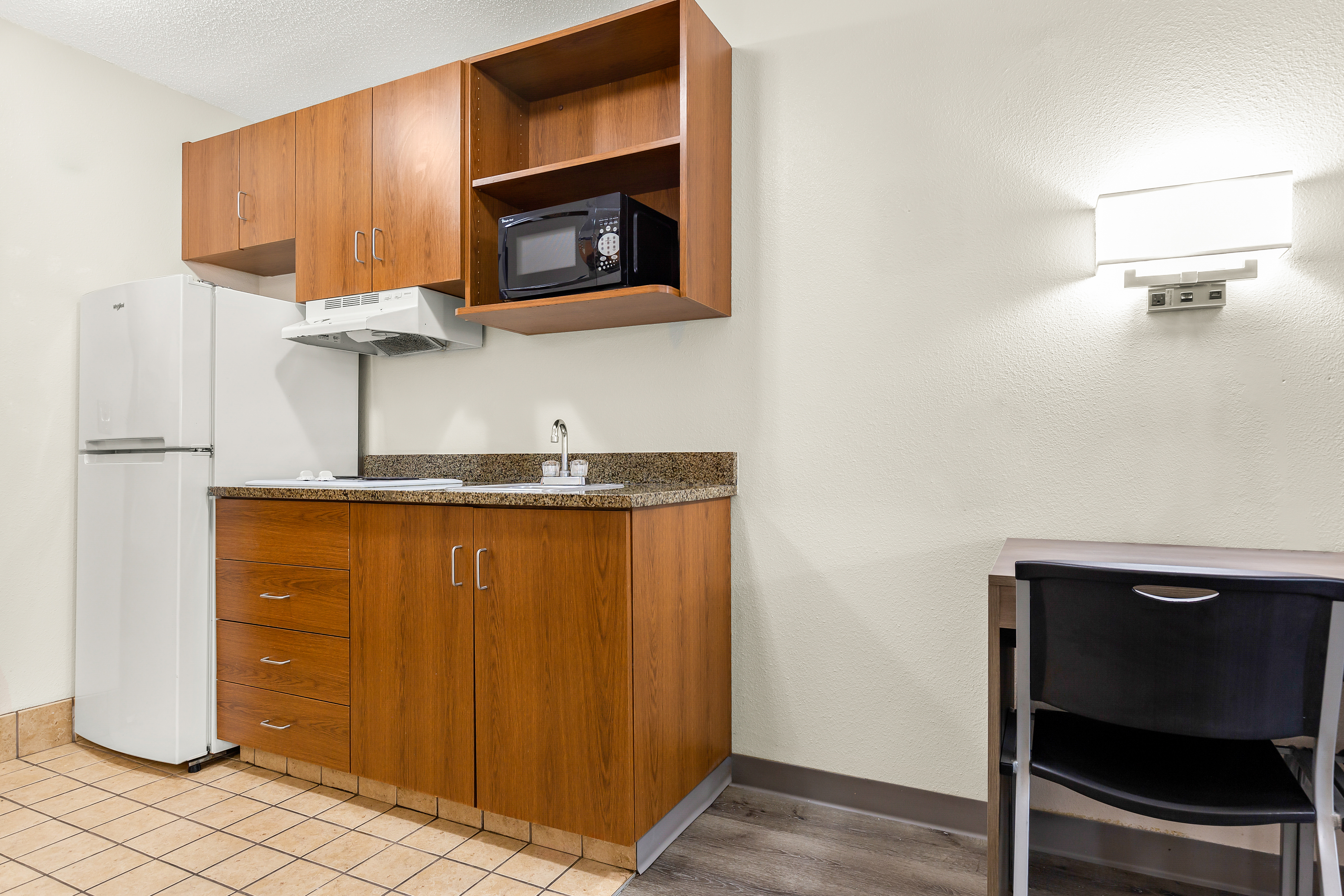
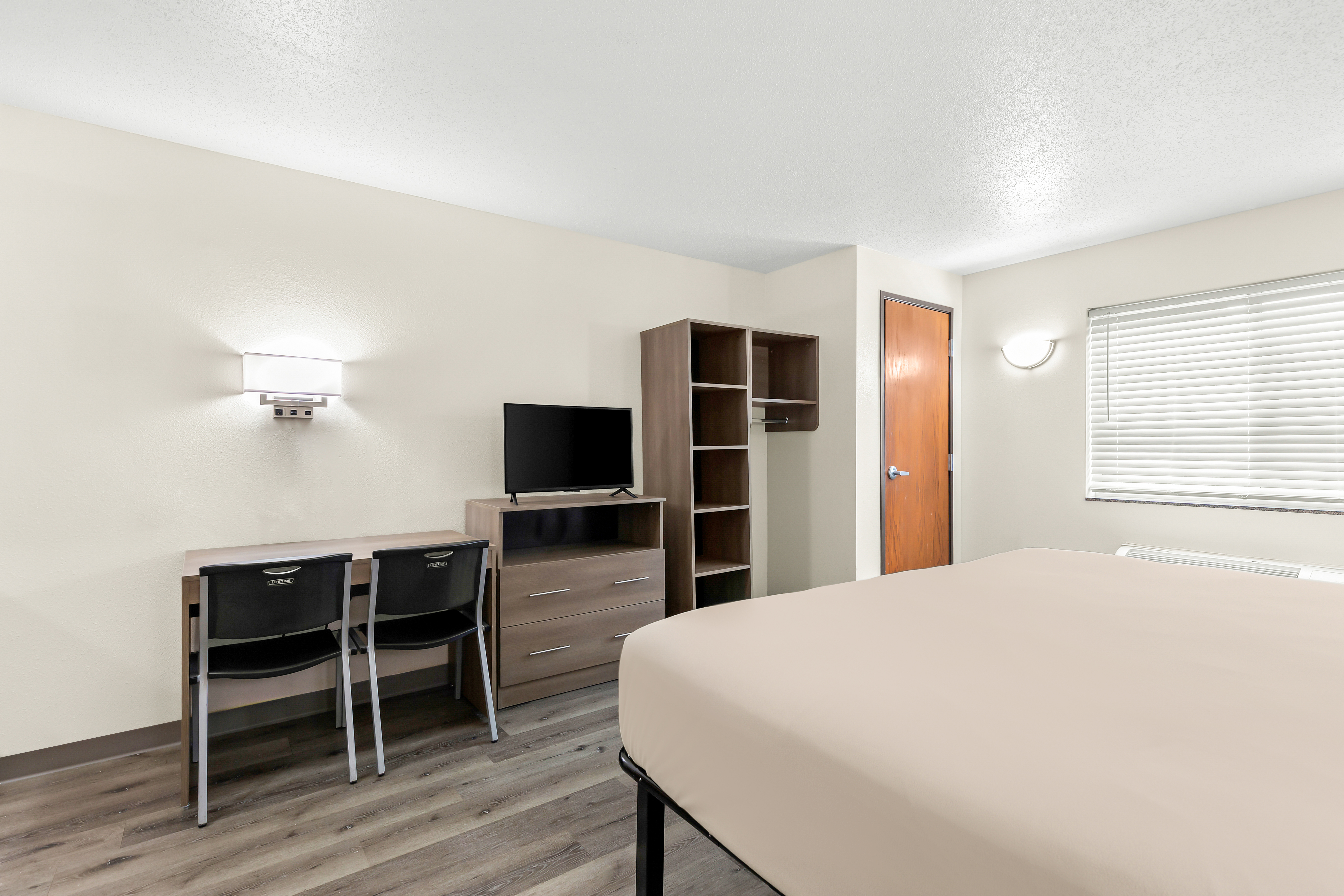
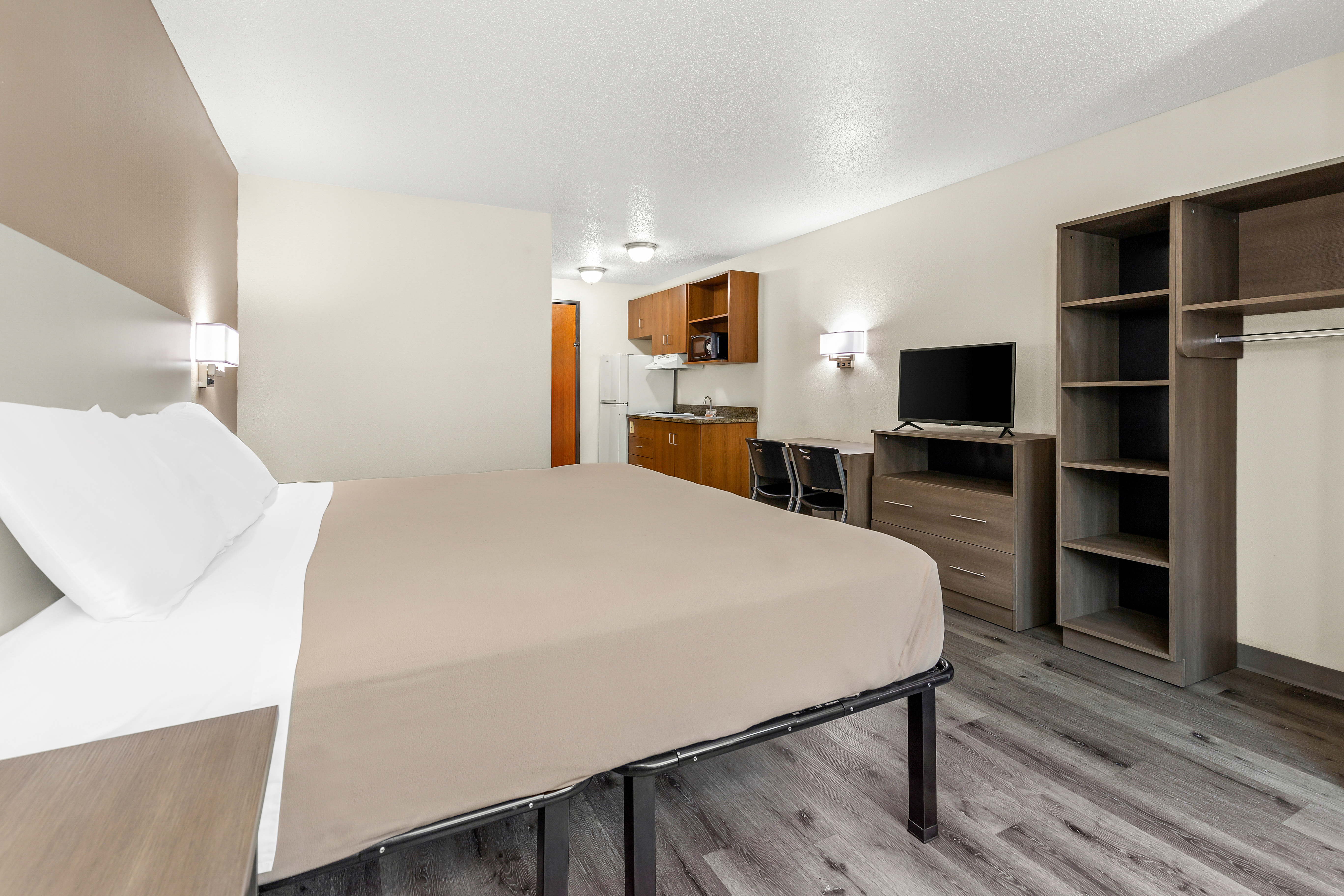

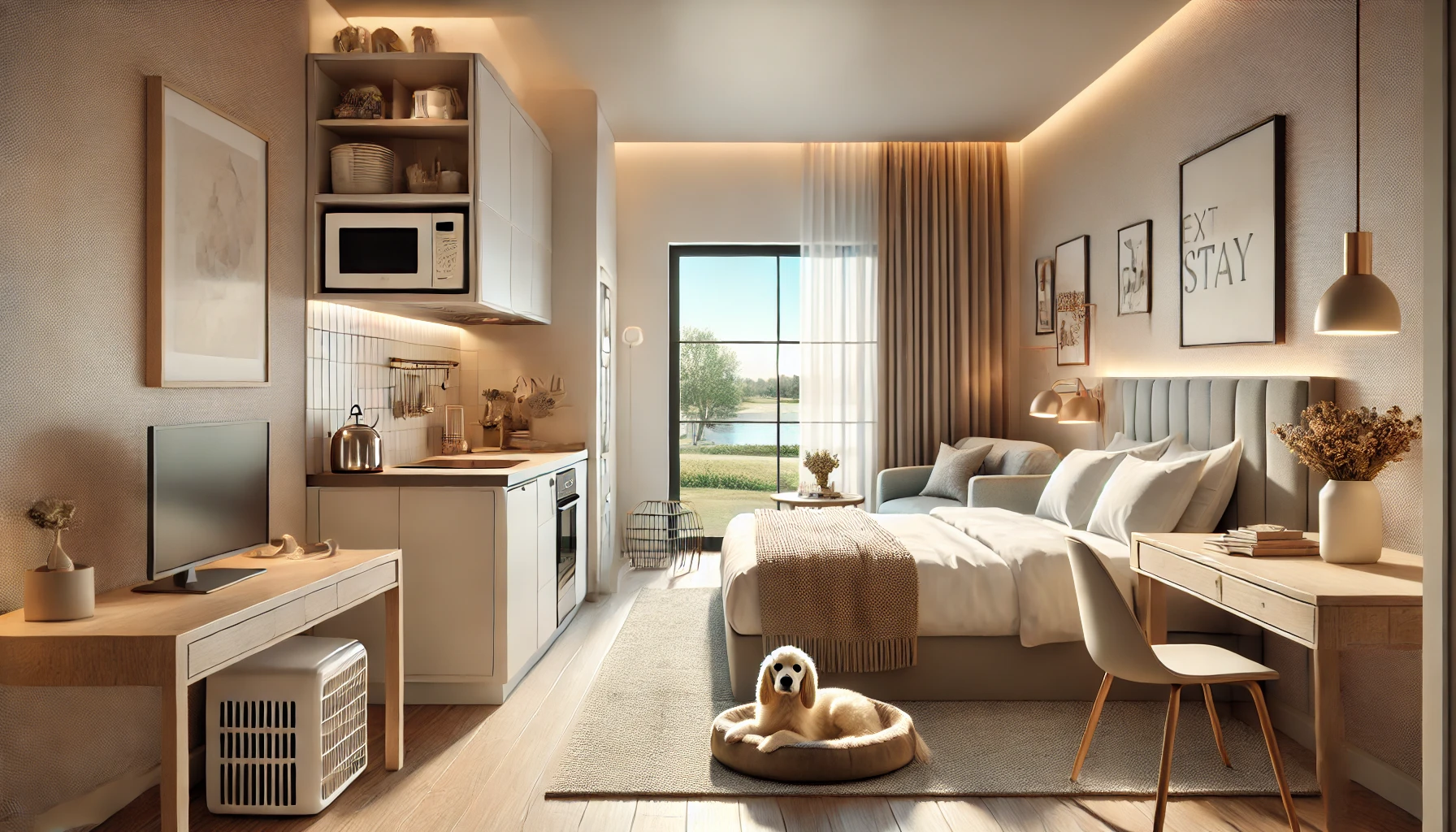
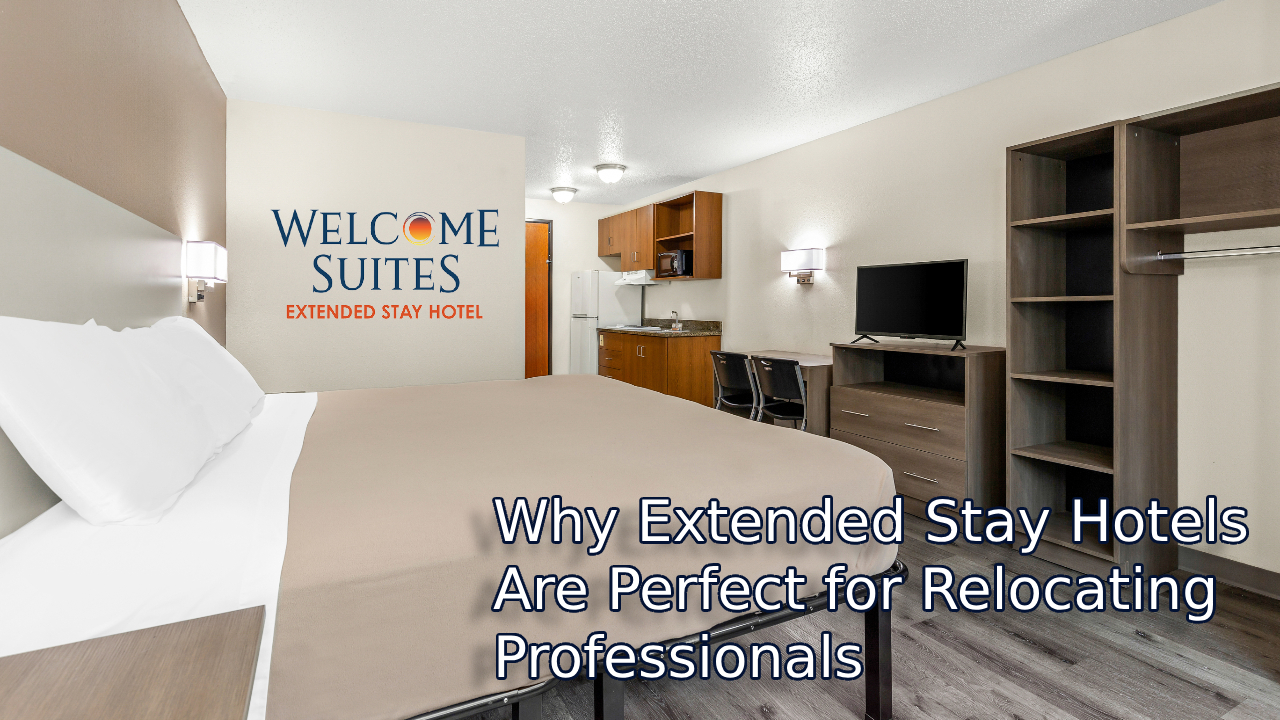


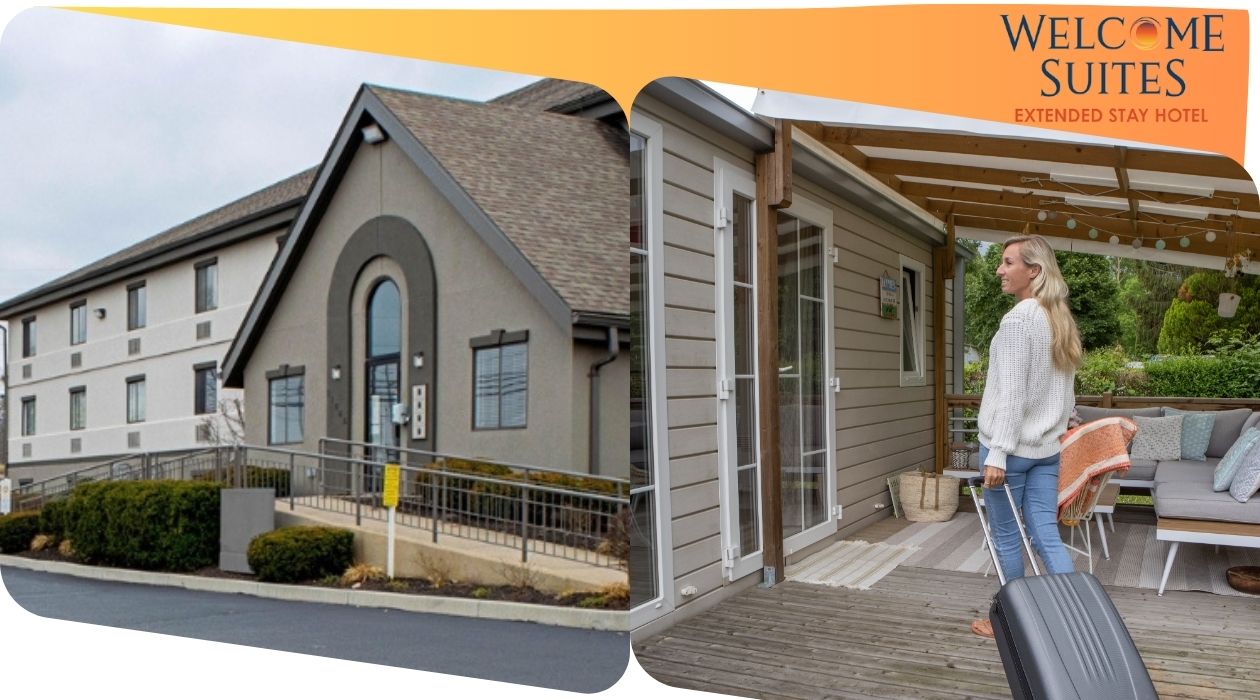












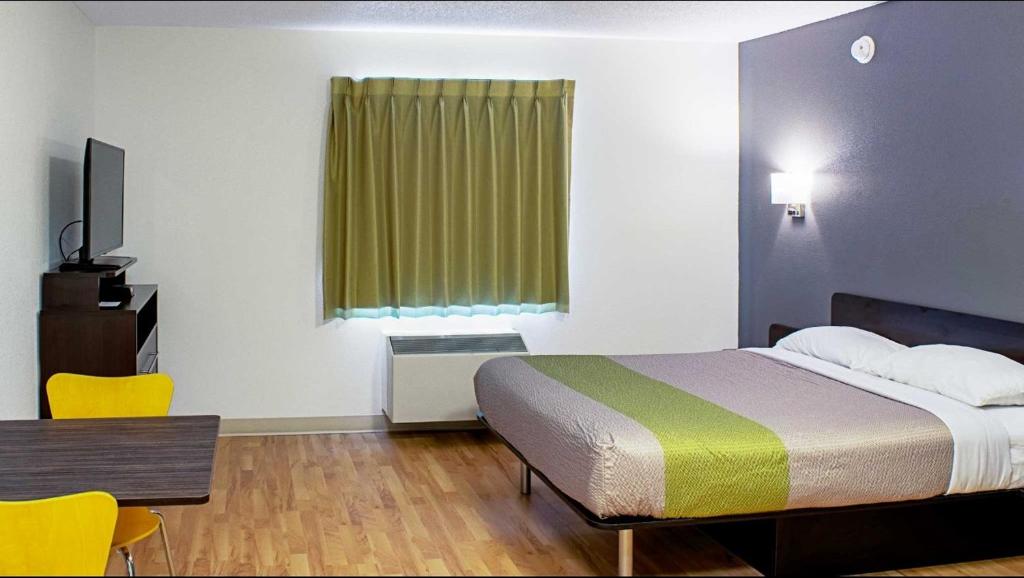
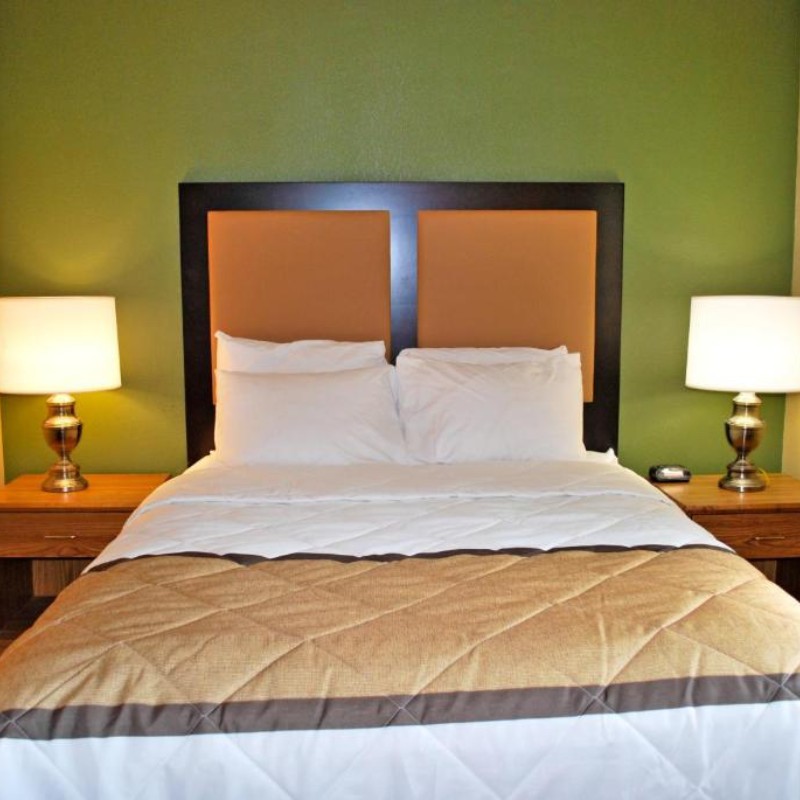

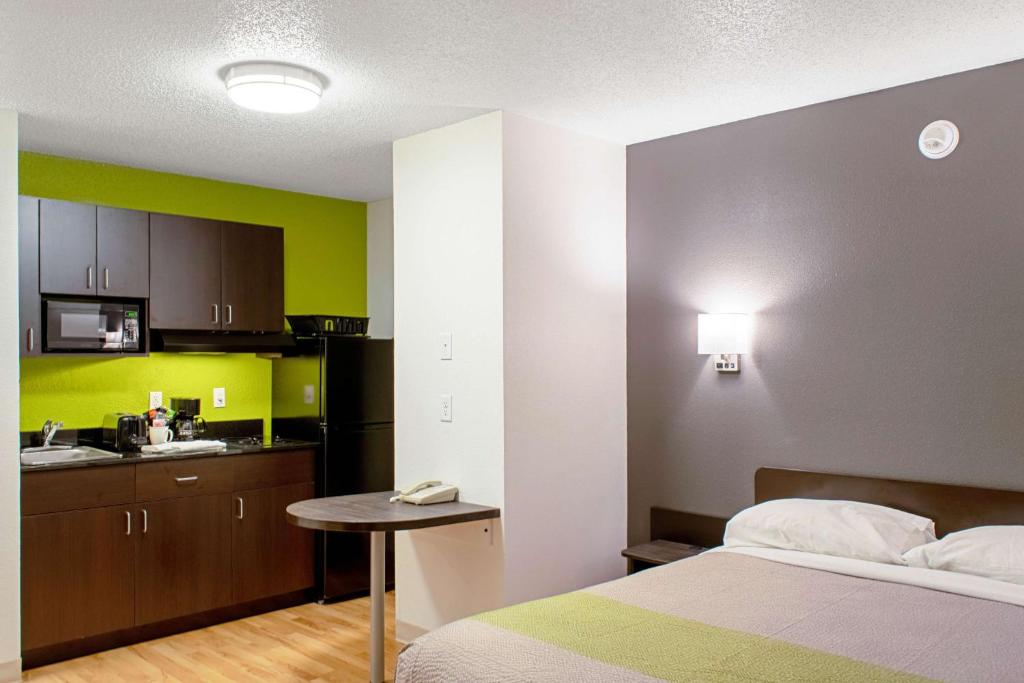

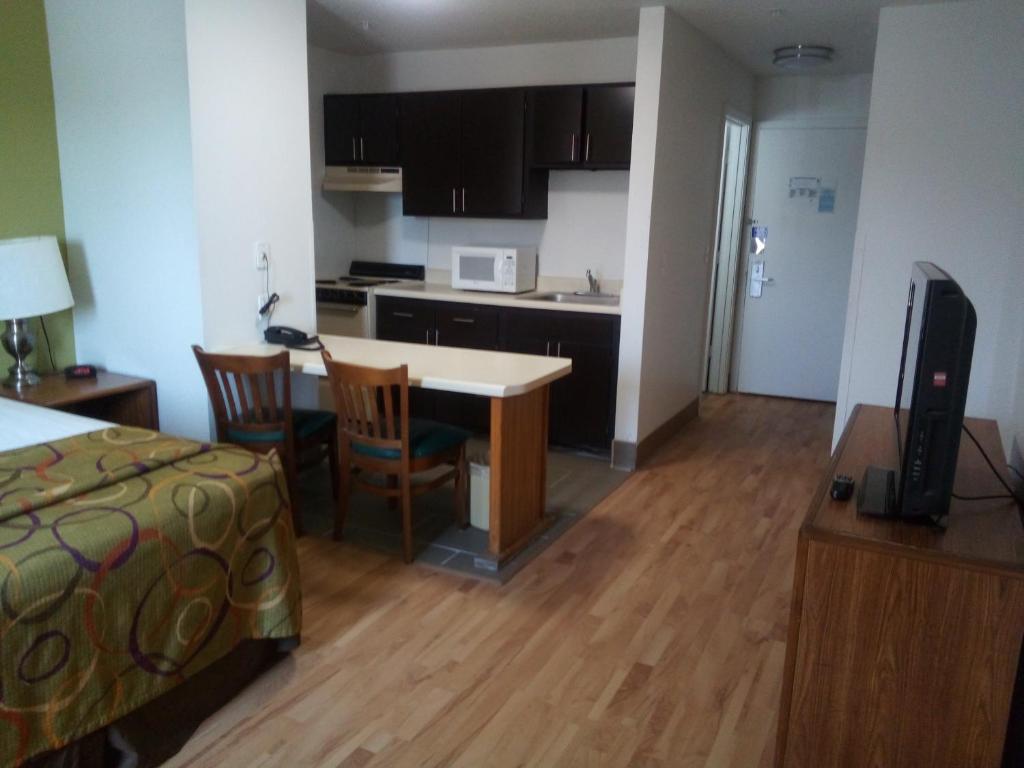
Leave a Reply